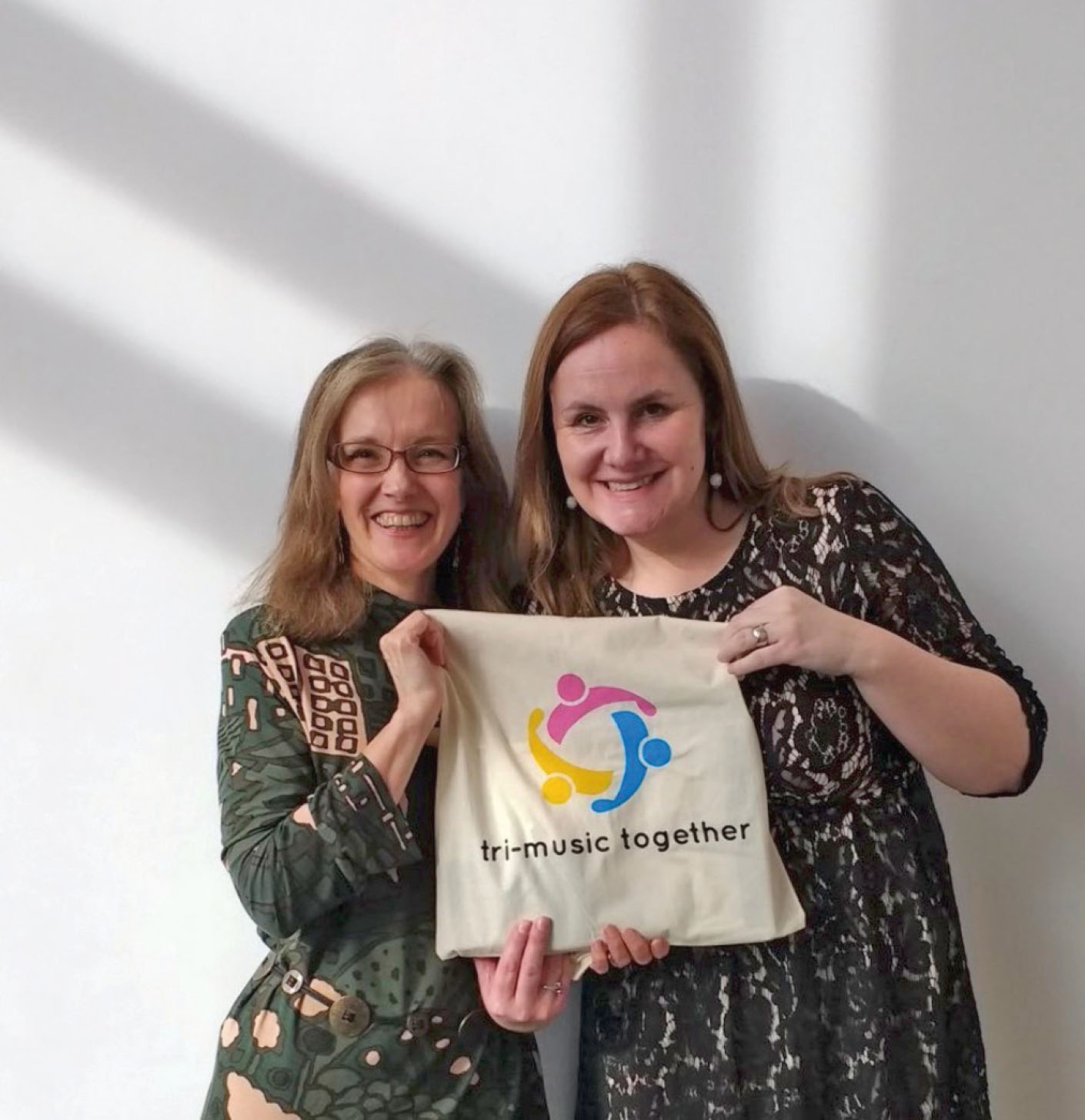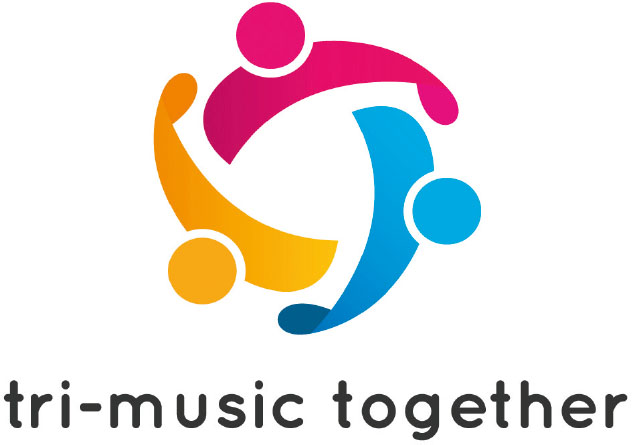
Although England's National Plan for Music Education (NPME) acknowledges that ‘music teaching starts in the early years’, music education hub funding from the Department for Education (DfE) is for children from the age of five. In other words, national policy does not include music-making in the early years. (It would be useful to clarify when the funding for five-year-olds starts – children turn five while in their Reception year; therefore, do these five-year-olds receive funding from the DfE while in Reception or is the reality that funded music education actually starts in Year 1?)
As a passionate advocate of music in the early years, my colleague Stuart Whatmore, head of the Tri-Borough Music Hub (TBMH), was keen to explore how our hub could provide music education in the early years (see box, right). Although early years foundation stage (EYFS) is outside the official remit of hubs, he strongly feels that children in the EYFS have the right to high-quality musical experiences. By providing music in the EYFS, he also felt that this could better link with Key Stage 1 music provision to ensure better progression and the joining-up of skills.

Nicola Burke (right) with project evaluator Jessica Pitt
Like Stuart, I strongly feel that it is every child's right to have access to high-quality musical experiences from birth. The fact that the NPME begins at age five is a huge disservice to children from birth to age four.
Even though early years music is outside the NPME, I feel that hubs should be exploring how they can support this age group. People often discuss why there is a need for early years music provision but the same question is rarely asked of primary or secondary music. Music is, in my opinion, a fundamental aspect of humanity; so the concept that music provision begins at age five is very peculiar.
In recent discussions I have been involved in, the focus of the conversation has been around why a hub should offer early years provision, and it has been refreshing for me to work alongside a senior leader who is not questioning ‘why?’ but exploring ‘how?’
Through meetings and discussions with partners of the TBMH, the Tri-Borough Early Years Music Consortium (TBEYMC) was created. The consortium consists of 14 partner organisations:
- The Royal Albert Hall
- Wigmore Hall
- The Royal College of Music
- Tri-Borough Music Hub
- The Voices Foundation
- Chickenshed Kensington & Chelsea
- Creative Futures
- Inspire-works
- Music House for Children
- The Royal Borough of Kensington and Chelsea Children's Centres
- The London Borough of Hammersmith and Fulham Children's Centres
- Westminster City Council Children's Centres
- Tri-Borough School Standards Education Service
The consortium was awarded £100,000 by Youth Music to deliver the EYFS project and I was appointed strategic lead in July 2016.
The focus of the Tri-Music Together project is on workforce development. We are aiming to develop early years music practice by offering a range of CPD for practitioners, teachers and musicians. Reflective practice is at the heart of the project and we are all learning from each other every step of the way.
The project is for:
- Those working in maintained schools and nurseries;
- Those working in children's centres;
- Those working in private, voluntary and independent settings;
- Music practitioners who work with the TBEYMC partner organisations.
The initial stages of the project involved a mapping exercise to obtain a clear picture of the current music provision in early years settings and the development needs of early years and music practitioners, and teachers.
Following this initial stage, we commissioned a range of training sessions to respond to the needs identified from the mapping exercise. Over the course of its two years, the project will deliver a host of CPD sessions for early years and music practitioners, and teachers. The CPD sessions include bespoke modelling sessions taking place in settings and centralised off-site sessions:
- Specific training for early years practitioners to develop knowledge and understanding of music and early years music-making;
- Specific training for TBEYMC music practitioners to develop knowledge and understanding of child development, pedagogy and early years music-making;
- Sessions for TBEYMC music practitioners and early years practitioners to discuss, reflect and share to develop practice.
A unique and innovative aspect of the project is that it is providing bespoke CPD sessions to address the specific needs of the early years practitioners and the specific needs of the music practitioners. Opportunities to access training such as this are rare. Musicians who are interested in working in early years have little opportunity to access courses to enable them to understand child development and pedagogy.
 Similarly, early years practitioners and teachers often do not receive training on children's musical development as part of their child development tuition.
Similarly, early years practitioners and teachers often do not receive training on children's musical development as part of their child development tuition.
This age group is often considered to be an easy and fun one to work with. Indeed, it can be fun, but the rapid human development within this age group is like no other. It is, therefore, not easy and requires deep understanding, knowledge and expertise.
Partners of the TBEYMC along with other music organisations and people across the country are lobbying for early years to be included in the NPME. Tri-Music Together is being looked at by Youth Music as a beacon project for hubs. Brighton and Hove Music Hub is about to embark on an EYFS project, also funded by Youth Music, and we are currently in conversation with the hub's head, Peter Chivers, discussing and sharing strategies.
It is our vision that when early years is included in the NPME, the strategies that we have explored throughout the Tri-Music Together project can be shared and explored by the other hubs across England.
www.triboroughmusichub.org/early-years/
This is an adapted version of an article which originally appeared on musiceducationuk.com in November 2017
Q&A
Stuart Whatmore, head of the Tri-Borough Music Hub, on why early years provision should be an important part of hubs’ work.
What led, convinced or persuaded you to invest in early years, even though it is outside the age range that hubs are required to provide for?
It just makes sense. The ‘investment’ is more to do with a logical intellectual investment as opposed to financial. There is of course some finance involved, but this is minimal, and it is more to do with the approach to learning at all stages of childhood development, and how children progress as learners.
Do you feel an obligation to children under five in your area to ensure that they are exposed to music?
Obligation is an interesting choice of word. I think it is more to do with us strategically trying to join up the dots of all provision which is already being delivered by a range of providers; develop this, and focus on the quality of what children under five receive. Children from birth are inherently musical – therefore, the question should be: ‘Why wouldn't we want to have an input to music provision for this age range?’
What impact would better early years music provision have on provision from KS1 and beyond?
From a workforce perspective, providing training on pedagogy and child development has helped with the development of teaching skills and teachers’ understanding of how children learn through a blend of play, exploration and adult-led experiences. Having positive and developmentally appropriate musical experiences in early childhood helps to lay firm foundations which will in turn have a positive impact children's musical development from KS1 to beyond.
Why have you invested in an early years project like this rather than focusing on services for your core demographic?
It is not an either-or. We fully deliver all core and extension services expected of all music education hubs, and have done so consistently and successfully since our formation in 2012. Our approach is to engage with all settings in our area – schools, children's centres, private settings – in order to offer a strategic overview of all music education activities in our patch. Partnerships are key to this happening in a successful and meaningful way. We may be leading this EYFS project but we are doing it as part of a consortium of very engaged partners who are all committed to their own organisational learning, impact and delivery.
The project is funded by Youth Music. What are you hoping its impact will be beyond the Tri-Borough Hub?
We hope that other hubs might take on board our approach to engage with the early childhood sector and to see the benefits it can bring to children, the workforce, settings and community engagement. We hope that there is a sustainable way forward where we look at developing certain areas already covered, and tackle new challenges that we feel need addressing. There is still a huge amount of work to do, people to engage with, and families and children to make music with.
What would you say to convince fellow hub leaders that investing in early years was a good idea?
At the November Music Mark conference, we presented to colleagues from across England about our project and promoted the positives about engaging in this area of work. We feel that the success, or otherwise, of all that we do is communication with the key stakeholders in our area. This project has helped us to communicate with new audiences, new settings, a new workforce, and widen our horizons beyond the standard music service delivery of instrumental lessons, music centres, ensembles and performances. We feel it has enhanced our offer to the community and we are continuously learning about what we need to do to improve our service.








